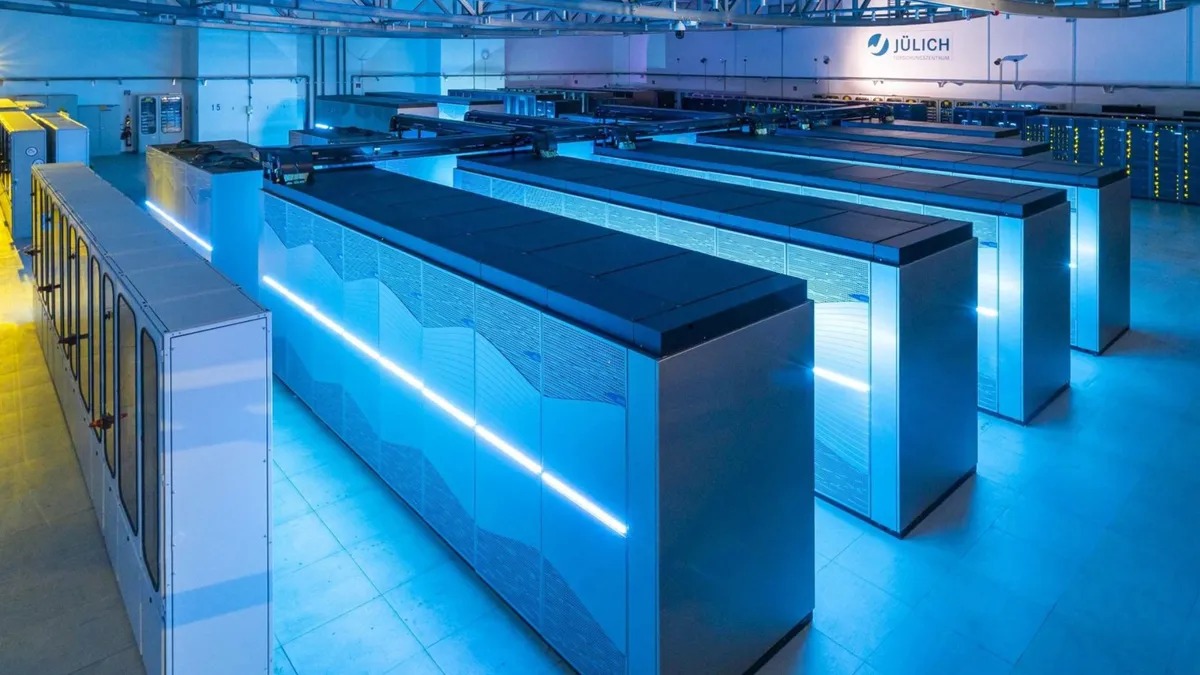The European Union has accelerated work on a supercomputer that will offer “unprecedented computing power” for scientific research and development. The project, called JUPITER, aims to operate at exascale. The supercomputer of the EU and major technology companies will make Europe a leader in high-performance computing.
What is the European supercomputer JUPITER?
Scheduled to be operational in early 2024, JUPITER is designed to perform 1 exaflop of processing. This means it can perform 1 quintillion (19-digit numbers) operations per second. It represents a million times faster computing power than even today’s most advanced supercomputers.
According to official statements, the limits of its processing capacity will allow simulations and calculations that were previously impossible. JUPITER will be managed by the Jülich Supercomputing Center and is being developed by researchers from ParTec, Eviden, SiPearl and Nvidia.
The exascale project combines Nvidia GPUs with SiPearl Rhea processors for artificial intelligence research. The two pieces of hardware will be integrated into the energy-efficient BullSequana platform developed by Eviden.
According to the Director of the Jülich Supercomputing Center, JUPITER can run at over 90 exaflops in AI applications using almost 24,000 GPUs. This means it will be the world’s fastest AI supercomputer.
JUPITER’s computing power is set to accelerate research in critical areas from climate change to new drug discovery and quantum physics.
Running JUPITER for three years is estimated to cost 500 million euros. It will also require 100 million euros of electricity every year. The supercomputer is expected to be completed this year.














